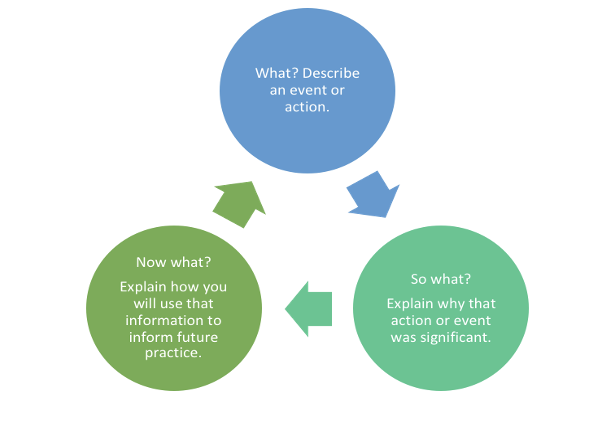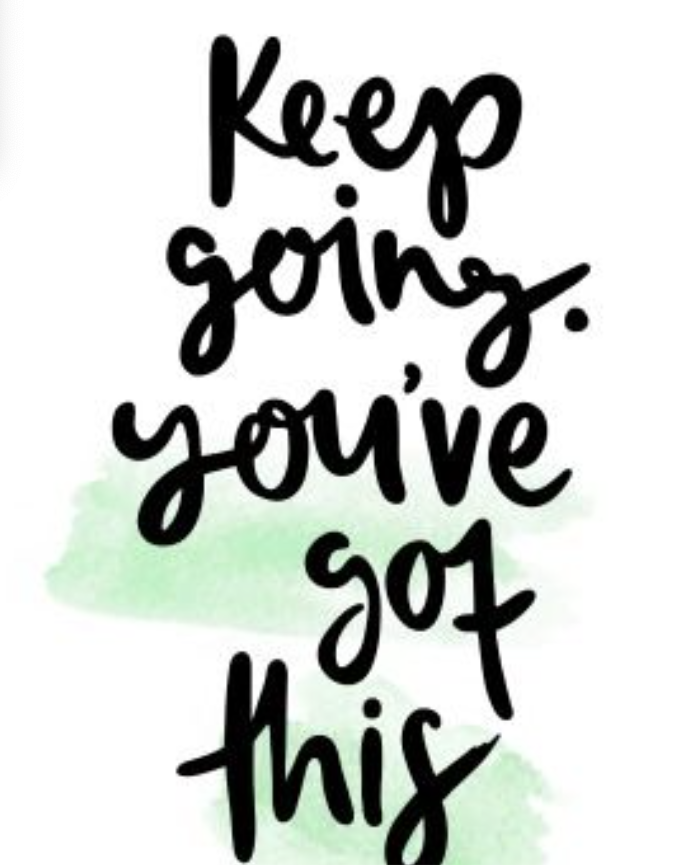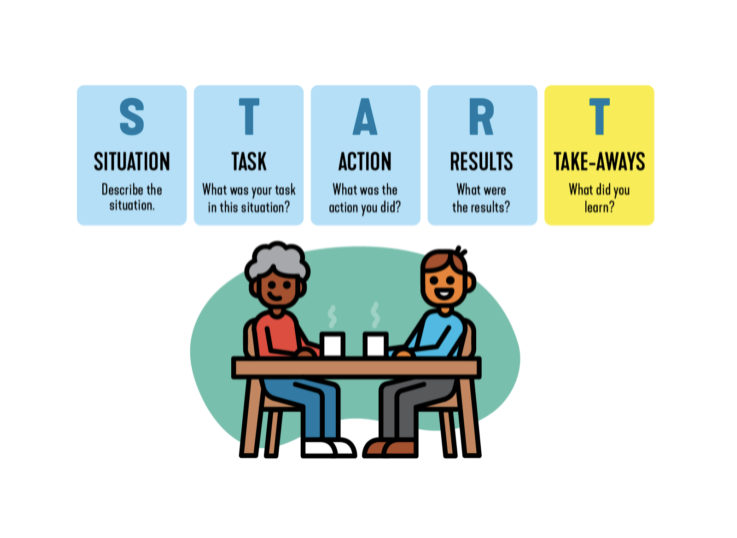FAIL TO PREPARE. PREPARE TO FAIL.

How do you find interviews?
You know the questions that start with, “So, tell me about a time when…” Can you summarise it in a way so that you get to the point quickly? or… do you waffle on and forget to mention key details and context, but you keep talking because you have forgotten what the question was, and it is too late to restart?
Indeed, me too!
The interview is a conversation with a purpose’ – Bingham W.V
Many people despise the thought of job interviews, and this is understandable. It’s scary to think that in a survey of 2,000 hiring managers, 33% claimed to know whether they would hire someone within 90 seconds (Search, C.E. (n.d.). 15 Interesting Recruitment Facts). Unfortunately, it is a procedure that everyone must go through to get their desired job. Let’s stop and think. You have the necessary training, natural skills, and a strong work ethic. You’re halfway there! Now, it’s time to prepare for that interview, but how? Mock interview practise! The more instances you rehearse, the better equipped you will be. In this case I received constructive criticism. Take this and utilise it as a tool to help you establish interview tactics for real interviews by refining your communication skills and minimising stress.
During my work-based learning module classes, I was introduced to many strategies that I can employ to improve to my interview techniques. This blog follows the STAR Method, an interview technique that gives you a structured format to shape an anecdote that you can use by laying out the Situation, Task, Action, and Result and The Borton Framework which encompasses my journey of preparation as well as the reality of interview day.

Description: What Happened?
My chosen job interview was for a Music teaching (specifically Harp tutor) post at Sherborne Girls boarding school in West Dorset. The comprehensive job description outlined all the candidate’s responsibilities. When reading the job listing, I knew I had the capabilities, past experience, knowledge etc….that they were looking for. The challenge was to be confident enough to convey this in an interview situation. According to Ayres and Crosby candidates who are anxious in the job interview receive significantly lower ratings of interview performance and are less likely to be hired for the job (Feiler, A.R., Powell,(2016). For the mock interview to be successful, I needed to match these aspirations and mirror what they wanted to hear. As a result, my rigorous preparation began.

so what ? – PREP PREP PREP
I was prepared with all I needed to endure the interview process, thanks to Emma’s lecture on interview preparation and readings. I reflected on my previous experiences and made a mental note of what tripped me up the most.
Our group comprised of four students, including me. I was all set for my interview. I had done my research, but now it was time to sell myself. Harris (2010) concluded that principals,” desired strong teaching skills with caring and knowledge of subject matter”(Juchniewicz, J. 2016). I felt my placement and experience were more than applicable to this position, and I wanted to demonstrate to the panel that I understand how to operate in an organised manner with children.
‘Tell me about a time you showed integrity in the workplace ‘
This was a difficult question, but I addressed it by employing the STAR Interview method.

Situation – One of my young beginner students was struggling greatly and progressing at a much slower rate than the rest of the class. I could tell she was becoming discouraged within herself, in the class, and that she was losing interest in playing her instrument. I found myself spending a lot of time going over the difficulties with the challenged student, which although necessary for this pupil was not beneficial for the others in the group.
Task – I was challenged because I wanted to assist this child with her learning, but because I teach in a mixed ability group setting, it is not feasible to commit yourself exclusively to one of your students. I felt that the situation was untenable and felt bad in myself. I was mindful that the student might become discouraged from playing.
Action – I met with my supervisor and explained the scenario to devise a plan to alleviate this and devise solutions.
Results- Working collaboratively we sorted the problem by employing an assistant to help me. By doing this we ensured that all of the students received the support they needed. I could see and hear the change not only in that one student, but in all of my students. They were enthusiastic, interested, inquisitive, and eager to learn. The pupil who was having difficulties thrived and the parents were kept informed of our strategies to assist their child.

Now what ?

In conclusion, despite the fact that this was a simulated interview, and no genuine post was obtained, it was an excellent experience for both the panellist and the candidate.
I now know how to
- 1) prepare for a professional interview and
- 2) use the STAR Method to make efficient and short responses.
- 3) Think critically and utilise the mock comments as a tool for future interviews.
My written comment was somewhat positive, which surprised me. Frankly, I feel that every interview is the worst thing that has ever happened to me. Evidently, this is an issue of confidence that I need to work on. I received 5/5 on two of the sections and a 4/5 on the third. Their responses were fascinating to read. One thing I need to concentrate on is connecting my talents and experience to the job description with which I agree. I feel these simulated interviews were vital and will be invaluable to me after university and for the rest of my career. They have assisted me in recognising my limitations and abilities, as well as providing me with the opportunity to think like a professional interviewer. I aim to improve and expand on these talents, which will serve me well, and I will use the STAR methodology to answer behavioural questions in the near future.
Bibliography
Bingham, W. V., & Moore, B. V. (1931). How to interview. Harpers. https://psycnet.apa.org/record/1931-04231-000 [Accessed 19th Feb. 2023].
Feiler, A.R., Powell,(2016) D.M. Behavioral Expression of Job Interview Anxiety. J Bus Psychol31, 155–171 . https://link.springer.com/article/10.1007/s10869-015-9403-z [Accessed 16th Feb. 2023].
Juchniewicz, J. (2016). An Examination of Music Teacher Job Interview Questions. Journal of Music Teacher Education, 26(1), 56–68. https://journals.sagepub.com/doi/pdf/10.1177/1057083715613590?casa_token=6ibomZQUVB8AAAAA:HgqOi0yetBJ9KMCAvhZKRqfjF9NE-QIP_yIfD4zQAy_t2yVjgzV_ZOaBGGGyog7q8xw797L8UYY [Accessed 19 Feb. 2023].
Lumenlearning.com. (2009). Frameworks for Reflective Writing | UM RhetLab. [online] Available at: https://courses.lumenlearning.com/olemiss-writing100/chapter/frameworks-for-reflective-writing/[Accessed 21st Feb. 2023].
Management 3.0. (n.d.). STAR Behavioral Interviews: How to recruit with 5 questions. [online] Available at: https://management30.com/practice/star-behavioral-interview-questions/ [Accessed 17th Feb. 2023].
Search, C.E. (n.d.). 15 Interesting Recruitment Facts | Collingwood Executive Search. [online] www.collingwoodsearch.co.uk. Available at: https://www.collingwoodsearch.co.uk/insights/15-interesting-recruitment-facts [Accessed 10th Feb. 2023].
You May Also Like

Interview a New You! – Becoming an Interview Guru
24 February 2023
BE A S.T.A.R 🌟
14 February 2023
